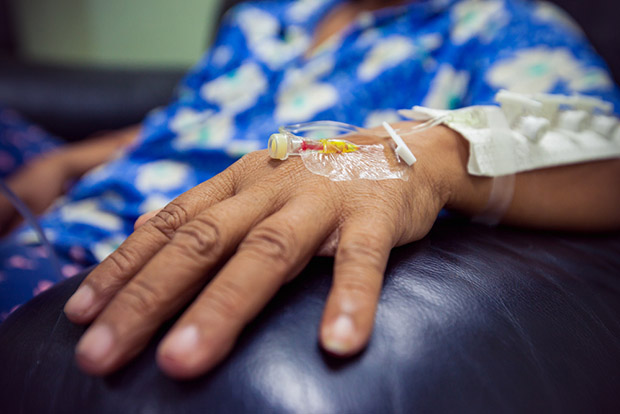
Mistrust toward breast cancer treatment and the health care system at large were expressed by African Americans who participated in Chicago focus groups, suggests new research led by an expert on the health of vulnerable populations at the Brown School at Washington University in St. Louis.
It’s mistrust that physicians need to be especially aware of, said Sarah Gehlert, PhD, the E. Desmond Lee Professor of Racial and Ethnic Diversity and lead author of the research.
Mistrust, Gehlert said, “affects how patients adhere to treatment.”

“Patients, especially older adults, often are polite and do not disagree when treatment is proposed,” she said. “Yet if it conflicts with their health beliefs, they might not follow recommendations. This produces a bad dynamic between the provider and the patient.”
Researchers recruited 503 women and men from 15 of Chicago’s predominantly African-American South Side neighborhoods to participate in 49 focus groups.
Participants cited feelings of being “treated like a guinea pig,” living the legacy of Tuskegee and other forms of experimentation on African Americans, and being maltreated due to race.
The risk of African-American women dying from breast cancer is estimated to be 41 percent higher than that of white women in the United States.
Gehlert’s findings were published in the journal Critical Public Health.
“These findings suggest that historical and contemporary incidents remain a point of debate,” Gehlert wrote in the paper. “Our findings warrant the promotion of increased cultural sensitivity amongst health professionals regarding this historically rooted mistrust and its present-day implications.”
Gehlert said she was not surprised by the results.
“I think that we often assume that change is occurring as a natural process when it might not be, or it might be countered by emerging information,” she said. “Even though we think that time heals all wounds, increased access to events like Ferguson and to conflicting stories about what protects and is bad for health — through social and other media — may lead to mistrust.”
Comments and respectful dialogue are encouraged, but content will be moderated. Please, no personal attacks, obscenity or profanity, selling of commercial products, or endorsements of political candidates or positions. We reserve the right to remove any inappropriate comments. We also cannot address individual medical concerns or provide medical advice in this forum.